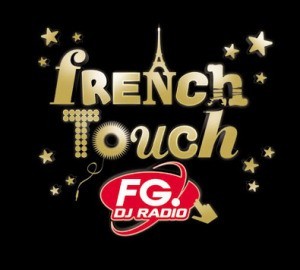
File download is hosted on Megaupload
As Britain in the 90s frothed over Britpop, on the other side of the Channel the French were having their own patriotic music awakening, thanks to the French Touch, a one-size-fits-all term applied to the disco-led house music that filtered its way out of Paris in the mid to late 90s.
At the time, it seemed the two could hardly be more different: Britpop was a brand of Kinks-ian guitar music designed for lagery indie discos, while the French Touch combined smooth house beats, disco bass lines, French chic and sophisticated night clubs. It’s only now, looking back from 20 years on that I can see how much they have in common.
Patriotism and awakening
Britpop was seen as solidly British pop, long marginalised from its 60s boom, patriotically returning to claim its rightful chart crown.
The French Touch, meanwhile, was more modest in its aims. But there was still a general feeling at the time of amazement that a global audience was, perhaps for the first time in 40 years, actually paying attention to French music, with some groups(Daft Punk, Air) even climbing the international charts.
A Les Inrockuptibles headline about Air (who didn’t produce house music as such, but were still seen as French Touch) pretty much summed it up: “Le group que le monde nous envie” (the group that the world is jealous of).
Retro sounds
Britpop’s retro musical style was obvious for all to see, calling heavily on the giants of 60s music like The Beatles and The Kinks.
The French Touch, while on the face of it maybe more forward-looking and technology based, also had a retro streak as wide the Champs-Élysées, worshiping not the 60s but instead taking influences from – and sampling wholesale – 70s disco giants like Cerrone and Space.
A few great records, a load of mediocrity
As the alternating waves of affection and bile from the British media prove, Britpop can be a controversial subject, with a great deal of argument over who was and wasn’t Britpop and whether the whole thing was actually a giant musical deadened.
That said, I think few people would argue that Blur’s Parklife, Elastica’s eponymous debut and Pulp’s Different Class were A) at least Britpopish and B) pretty brilliant records. Equally, I don’t see many people sticking up for Sleeper, Echobelly and Menswe@r in the Britpop revival.
Similarly, the French Touch produced some sublime records: Daft Punk’s Homework, St Germain’s Boulevard, Étienne de Crécy’s Super Discount and Motorbass’s Pansoul among them.
These, sadly, were then followed onto the shelves by wave upon wave of identikit filter disco tracks, which sounded OK but reeked of lazy adhesion to a formula. They were probably more enjoyable than the collected works of Menswe@r. But no more innovative.
Ongoing influence
Britpop and the French Touch both effectively met their end as the 90s drew to a close. For Britpop, the hype over Oasis’ awful third record Be Here Now and a growing realisation that Sleeper et al really weren’t the future of music helped to put an end to the once-loved genre.
Nevertheless, the leading Britpop acts – Oasis and Blur – continue to throw a long shadow over British music today, with rumours of an Oasis reunion sending the British press into meltdown this past week.
In France, the French Touch faded away as a label as several of the leading lights went quiet in the early 2000s (St Germain and Motorbass among them), while the filtered house approach popularised by the French producers was taken up by dance acts and DJs around the world, such as Erick Morillo and the Subliminal Records bunch.
Nevertheless, in 2014 it is still the same old names from the French Touch era who dominate French music internationally: Daft Punk had one of the biggest hits of 2013 with Random Access Memories, while David Guetta (a key French Touch DJ) is a true superstar producer.
Most oddly of all Phoenix, that weird runt of the French Touch litter, enter summer 2014 as global festival headliners.
Enfin…
My point, I suppose, is that much as Britpop itself was an incredibly insular musical love in, so the coverage of it has comprehensively failed to look further afield at what was happening in the rest of the world at the time.
Maybe it doesn’t need to: if Britpop was inward-looking then you could argue that the coverage of the anniversary should be equally so. Or maybe I’m looking for something different entirely.
Then again, even the pieces which criticise Britpop’s insularity tend to look no further than the British music of the time (or at a push, make a comparison with the US), with many making lists of 90s British artists we should be listening to instead of reviving Britpop.
The French Touch was far from perfect. But, arguably, its global influence surpassed that of Britpop, with Daft Punk and David Guetta having a vast influence on US R&B and pop of the last few years. And this from a country that was ing thought of as a musical backwater.
That’s a point worth making. Although you probably won’t hear it in the British media.




































